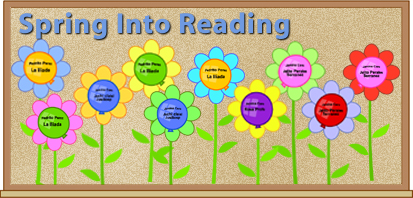Monday, September 26, 2011
Fluency - Importance of Punctuation
Fluency refers to the reader's ability to develop control over surface level text processing so that he or she can focus on understanding the deeper levels of meaning embedded in the text. The Rasinski article focused mainly on the three important "dimensions that build a bridge to comprehension." 1. Accuracy in Word Decoding; 2. Automatic Processing; and 3. Prosodic Reading. These steps mainly talked about how a child (or someone learning to read) needs to be able to sound out words in a text with minimal effort and few errors, as well as not ignoring the punctuation. I wanted to focus on the third dimension of fluency. Although being able to know words and their meanings is very important in reading, having expression and emotional understanding is important as well. Prosodic Reading allows the reader to understand the feeling and depth of the text. Without including punctuation an article, story, etc. would be very boring. If skipping over the commas, periods, and exclamation points is taking place, the reader may not fully understand the text. Punctuation is put into literature to stimulate the reader, if ignored, the exciting aspect of learning new things becomes just some words on a page. BOOORING!

Monday, September 19, 2011
IRA Statement
From a young age, kids need to be surrounded by reading. Within a classroom, reading should be everywhere and encouraged by everyone. There are so many forms of reading and literacy that all children should be exposed before they even come into a school. Teachers should have a good environment in which children feel comfortable to learn. Within this environment, different literacy ideas should be spread around the room. Teachers should be kept up to date on new technology, ideas, and theories on ways children can progress in their reading skills. The position statement mainly summarizes the importance of a child’s literacy surroundings. The surroundings should influence and stimulate the students' minds in order to make reading more fun and easy. The help from parents at home is very important, but some students just don't have the type of lifestyle in which they can receive the stimulation they need at a very young age. Immersing children into the world of reading is the best and fastest way in which they can learn. They need to see the availability and variety of learning the new skill of reading.


Sunday, September 11, 2011
Reading at a Young Age

Reading is the foundation for life in the United States as well as many other countries. A child is exposed to reading well before they even know what it is. When children come into school, their peers are at different stages of reading levels. Some can read small words where others don't even know letters. The Bell and Jarvis article explains a great way of how teachers should introduce reading within their classrooms. Students should feel that they can already read and will be able to progress in their level and enjoyment of reading. The article states that children should understand what they are reading, not just how to write and say the words. I think this is a very important message for teachers in that, there is no point for just being able to read without making sense of the material. Giving children examples of what they already know will boost their confidence and willingness to read more. Making reading fun and exciting is great,when including objects and colors in a good environment for education.
Subscribe to:
Comments (Atom)